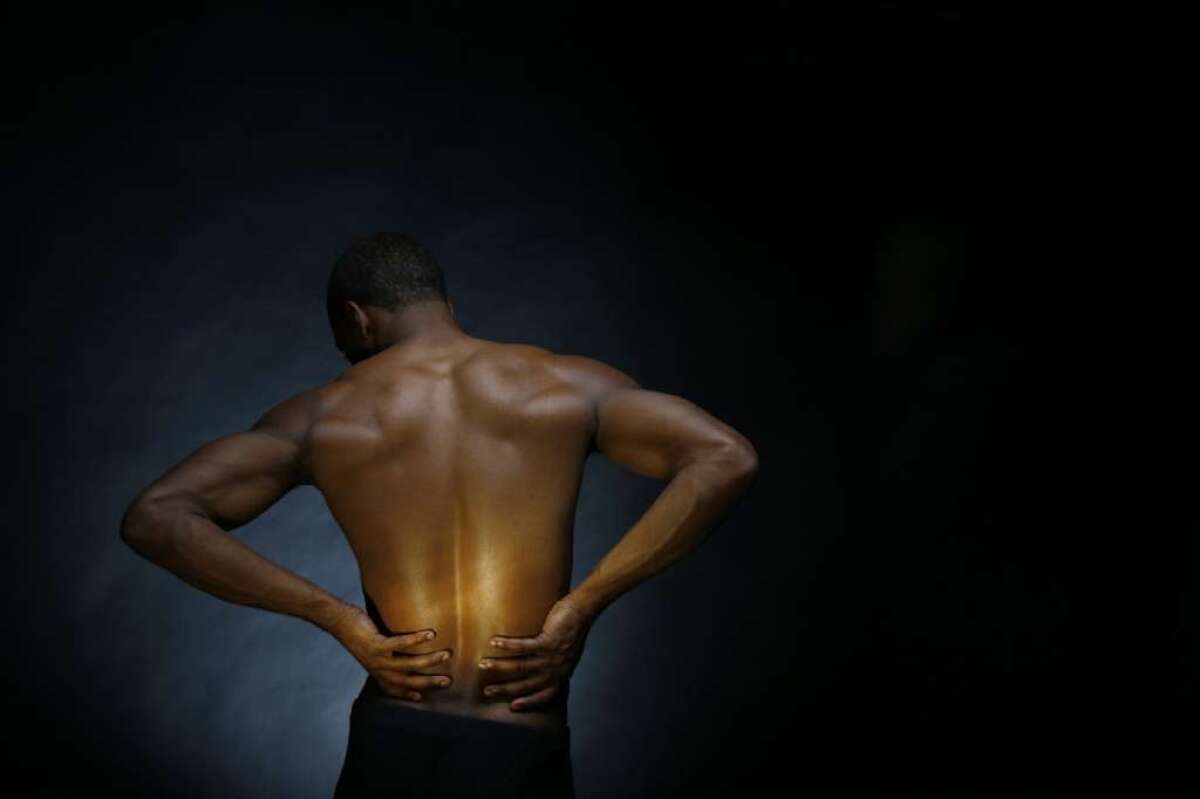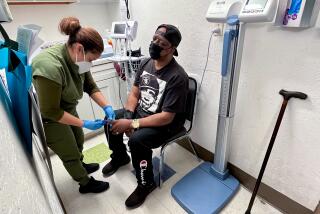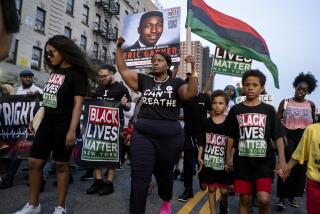Does a white doctor understand a black patient’s pain?

A new study investigates the relationship between white medical students’ beliefs about racial differences and their assessment of pain in white and black patients.
Does the blood of black people clot more readily than that of white people? Does a black person’s skin generally have more collagen--is it thicker--than a white person’s? Are black people better at detecting movement than white people, and do they age more slowly?
If you are white and said yes -- or even maybe -- to any of the questions above, you are not alone in falling prey to false beliefs about physiological differences between white and black people. A new study reveals that in a group of 222 white medical students, half judged as possibly, probably or definitely true at least one of 11 false beliefs about racial differences.
And that is not without potential consequences for the patients these medical students may one day treat, the new research suggests.
Possibly swayed by false beliefs about biological differences between white and black people, some white medical students tend to rate the physical pain of a hypothetical African American patient as less severe than that of a white patient in the same circumstances, says a study published Monday in the journal PNAS.
That cascade of race-based assumptions is, in turn, linked to prescribing decisions that treat white patients’ pain more aggressively than that of black patients, the study concludes.
The findings illuminate an often-observed disparity in the treatment of whites and blacks when it comes to treating pain: Research has long shown that in a wide range of medical circumstances and across the age spectrum, black patients are less likely to get pain medications and, when they do, are prescribed less, than are white patients reporting the same conditions and pain levels.
A group of psychology researchers from the University of Virginia set out to explore whether that disparity might spring from beliefs about racial differences that were long deeply rooted in U.S. society. The belief that African Americans are more robust and physically resilient than white Americans -- and therefore that they feel less pain -- may stem from the assumption that only the strongest survived the physical rigors of slavery. Or it may have been passed down from self-serving slave-owners who wished to believe that their slaves did not suffer from back-breaking work.
The assumption that black people are more impervious to pain than whites extended well into the 20th century and was used, in part, to justify notorious experiments in which black subjects became unwitting guinea pigs.
Today, wrote the authors, that belief may underlie the claim by some that black people are better, stronger, more agile athletes. Many laypeople, scientists and scholars, they wrote, continue to argue that “the black body is biologically and fundamentally different than the white body and that race is a fixed marker of group membership, rooted in biology.”
See the most-read stories in Science this hour >>
Research, of course, has clearly established that racial differences in disease rates exist. But while some genetic predispositions are under study, researchers tend to see social and economic differences, as well as racial disparities in healthcare access, as the most significant contributors to differing health outcomes between black and white Americans.
The white medical students who took part in the study ranged from first-year students to residents, who already have begun to treat patients. All attended the same large public university and completed their participation during class time. The study offered participants 15 statements about physiological differences that fall along race lines and asked them to rate whether the statements were either definitely, probably or possibly untrue or possibly, probably or definitely true.
Four of those statements actually are true -- that black people have denser, stronger bones than whites, are less likely than whites to contract spinal cord diseases such as multiple sclerosis, and are more likely to develop heart disease and to have a stroke. Among the false beliefs offered: that white people have larger brains and more efficient respiratory systems than black people; and that compared with whites, black people have stronger immune systems, have a far more acute sense of smell, and are significantly more fertile.
One question directly related to pain asked whether medical students believed that black people’s nerve endings are less sensitive than white people’s nerve endings. Eight percent of the first-year medical students, 14% of the second-year students, none of the third-year students, and one of 28 residents responded that that claim was possibly, probably or definitely true.
The researchers then had the white medical students read two medical case studies--one described as a white patient, the other black--and assess the level of pain the patient was likely feeling and what form of pain relief would be appropriate. The case studies either described a patient with an ankle fracture or one with a kidney stone.
Led by UVa social psychologist Kelly M. Hoffman, the researchers found that the more false beliefs about racial differences a medical student subscribed to, the more likely he or she was to judge a white person’s pain to be more severe than that of a black person. Embracing more false beliefs also predicted that a subject would correctly prescribe the level of pain relief recommended in the case of the white patient, but would underestimate the standard pain relief needed for the black patient’s reported level of pain.
These are associations, of course. They therefore cannot be interpreted as showing that false beliefs about racial differences directly caused these medical students to minimize the pain of black patients. But the cascade of associations--from false beliefs to pain assessments to prescribing decisions--suggests strongly that deep misconceptions may be at the root of subjects’ behavior.
Unexpectedly, those medical students who embraced few or no false beliefs about racial differences seemed to have a bias in the other direction: They generally rated an African American patient’s pain as more severe than that of his or her white counterpart with the same affliction. These medical students did not, however, recommend different levels of pain relief for black and white patients.
“It thus seems that racial bias in pain perception has pernicious consequences for accuracy in treatment recommendations for black patients and not for white patients,” the researchers concluded.
Follow me on Twitter @LATMelissaHealy and “like” Los Angeles Times Science & Health on Facebook.
MORE SCIENCE & HEALTH NEWS
What does it mean to have a ‘good death’?
FDA softens restrictions on ‘abortion pill’ Mifeprex
Will obesity reverse the life-span gains made over decades of health triumphs?







